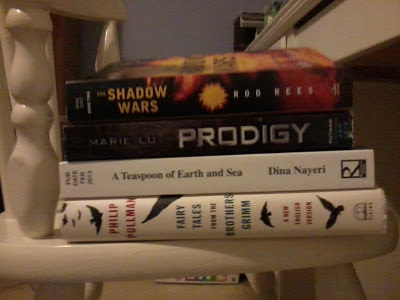Date: 1981
Format: paperback
Source: purchased used
Read: because the blurb mentions a "utopian experiment"
Pages: 375
From GoodReads: In a breathtaking adventure story, the paranoid and brilliant inventor Allie Fox takes his family to live in the Honduran jungle, determined to build a civilization better than the one they've left. Fleeing from an America he sees as mired in materialism and conformity, he hopes to rediscover a purer life. But his utopian experiment takes a dark turn when his obsessions lead the family toward unimaginable danger.
My review: I think any issues I had with The Mosquito Coast stemmed from the fact that, for some reason, my reading of it got spread out over almost two weeks rather than the usual couple of days. I also ended up really wanting to go ahead and know stuff and so skipped forward a little, plus I looked up a synopsis of the movie version after watching Blade Runner. (Both star Harrison Ford. There's a sorta-complicated thought process behind all this.)
Anyway, the novel started out strong. You have father Allie Fox, who's increasingly shown to be pretty crazy, though in a weird way I agree with some of the things he said. It also becomes clear fairly early that The Mosquito Coast is a coming-of-age survivalist novel along the lines of The Dolphin People (one of my favorite reads of 2012). By dint of the fact that you have a teenage boy and his family stuck with a madman in the middle of the Honduran jungle trying to build a utopian settlement, the book's never going to be boring.
But it might still drag. I felt like the situation changed once or twice too much, making the book longer than it should have been. Certain elements, especially in Charlie's thoughts and the family's conversations, were repeated over and over again, far past when readers would grasp the point. I did have fun analyzing the relationship between Allie Fox, the environment, and his Western concept of positive, but isolated, "civilization" versus negative "living like monkeys." I feel like I should have enjoyed the writing and the story of The Mosquito Coast much more, but I was hindered by my own slow reading pace.






















